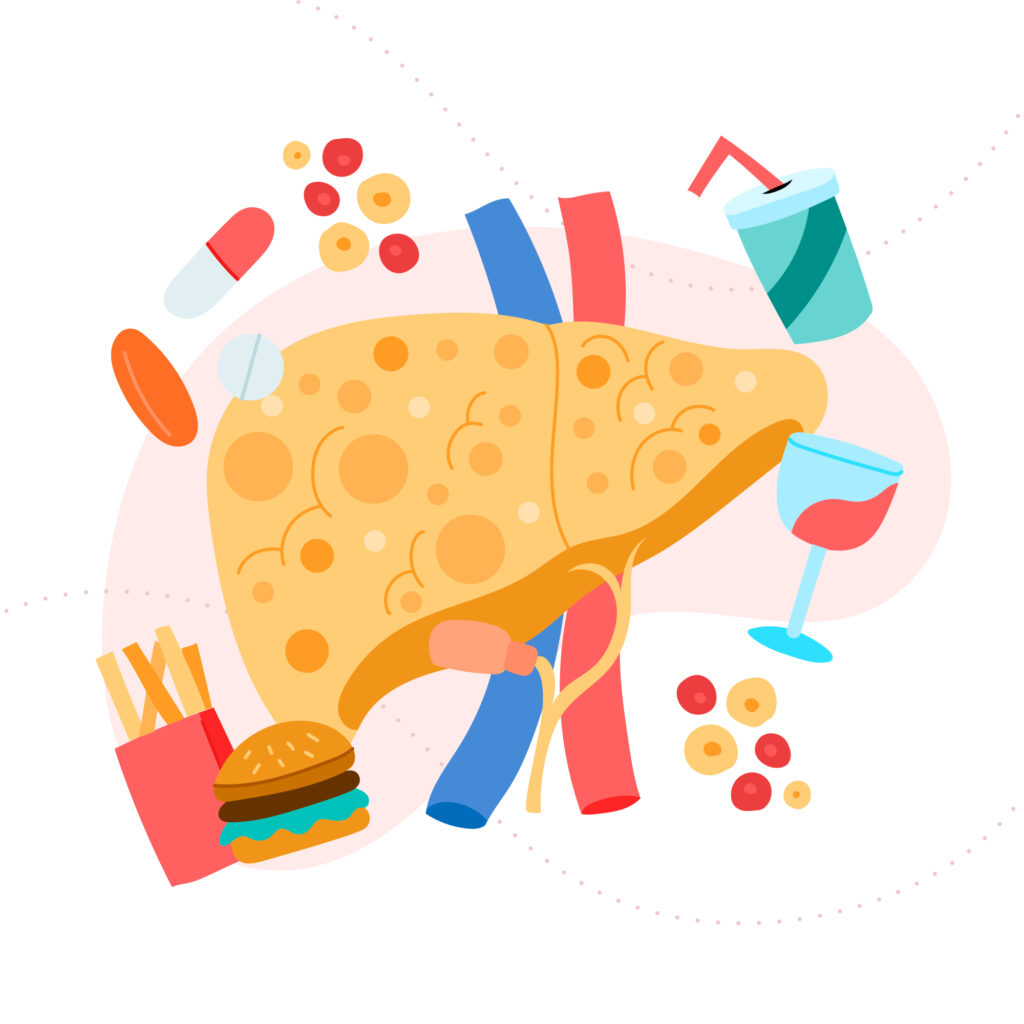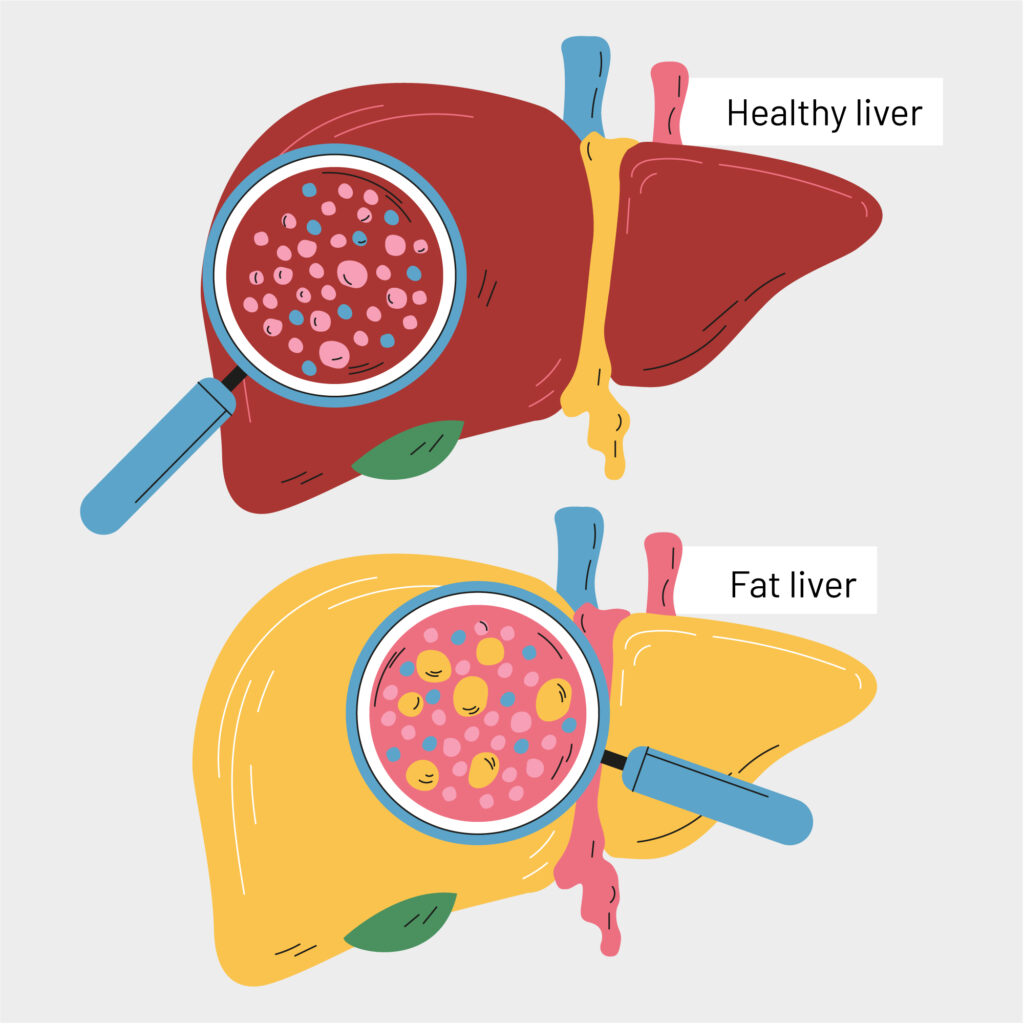
In this post, we will delve into the crucial topic of fatty liver disease, going beyond its association with alcohol consumption to explore essential management strategies for overall liver wellness. From understanding non-alcoholic fatty liver disease (NAFLD) to learning about liver detoxification and lifestyle changes for liver health, this comprehensive guide will cover everything you need to know to take care of your liver. Here is a brief outline of what we will discuss:
- Understanding fatty liver disease and its types
- Exploring the impact of alcohol consumption on liver health
- Effective management strategies for liver wellness, including diet, exercise, and supplements
Understanding Fatty Liver Disease and its Types:
Fatty liver disease refers to the accumulation of fat in liver cells. There are two main types: alcoholic fatty liver disease (AFLD) and non-alcoholic fatty liver disease (NAFLD). AFLD is mainly caused by excessive alcohol consumption, while NAFLD is linked to factors such as obesity, insulin resistance, and high levels of fats in the blood. It is important to differentiate between the two types as their management strategies may vary significantly.

The Impact of Alcohol Consumption on Liver Health:
Alcohol consumption can have a detrimental effect on liver health, leading to hepatic steatosis (fatty liver), liver inflammation, and in severe cases, liver cirrhosis. The liver plays a crucial role in metabolizing alcohol, and excessive drinking can overwhelm its capacity, resulting in liver damage. It is essential to limit alcohol intake and seek professional help if alcohol abuse is a concern to prevent further liver complications.
Effective Management Strategies for Liver Wellness:
To promote liver health and prevent or reverse liver damage, lifestyle changes play a key role. Adopting a healthy diet rich in fruits, vegetables, whole grains, and lean proteins can help reduce fat accumulation in the liver. Regular exercise not only aids in weight management but also improves liver function. In addition, certain liver health supplements, such as milk thistle and vitamin E, may support liver detoxification and reduce inflammation. Making these proactive changes can go a long way in maintaining optimal liver function and preventing liver-related complications.
Liver Detoxification and Lifestyle Changes for Liver Health:
Liver detoxification is a natural process through which the liver removes toxins from the body. Supporting this function is crucial for overall liver health. Consuming foods rich in antioxidants, such as berries, green tea, and turmeric, can aid in liver detoxification. Additionally, staying hydrated and limiting exposure to environmental toxins can help reduce the burden on the liver. Incorporating these practices into your daily routine can promote optimal liver function and prevent liver damage over time.
Prevention of Liver Cirrhosis and Damage Reversal:
Liver cirrhosis is a severe condition characterized by the scarring of the liver tissue, often as a result of prolonged liver damage. By adopting a healthy lifestyle, including maintaining a balanced diet, exercising regularly, and avoiding excessive alcohol consumption, the risk of developing liver cirrhosis can be significantly reduced. In some cases, early-stage liver damage can be reversed through lifestyle modifications, highlighting the importance of proactive liver care.
Empowering Yourself Through Knowledge and Action:
Educating yourself about liver health and taking proactive steps to care for your liver can have a profound impact on your overall well-being. By understanding the factors that contribute to liver disease, such as alcohol consumption, obesity, and poor diet choices, you can make informed decisions to protect your liver. Remember that small changes in lifestyle, such as incorporating liver-friendly foods and engaging in regular physical activity, can make a big difference in maintaining a healthy liver for years to come. Embrace the power of knowledge and action in unlocking optimal liver wellness.

Unlocking fatty liver wellness goes beyond addressing the impact of alcohol consumption to encompass a holistic approach to liver health. By understanding the types of fatty liver disease, implementing effective management strategies, and making lifestyle changes to support liver detoxification, you can proactively care for your liver and reduce the risk of liver-related complications. Remember that prevention is key, and by prioritizing liver health through diet, exercise, and informed choices, you can safeguard your liver for the long term. Empower yourself with knowledge and take action towards achieving optimal liver wellness. Your liver plays a vital role in your overall health, so make it a priority to nurture and protect it every day.